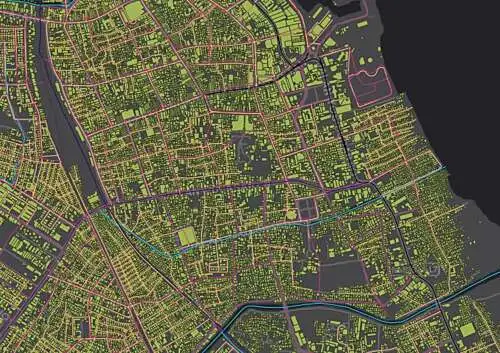Situating Land Conversion
Jakarta, IDN]

Project Description
The research examines the urbanisation processes in Southeast Asia by focusing on linked peri-urban and rural case study regions around Jakarta. In contrast to the Euro-American urbanisation theories such as ‘city-centric’, convergence of western perspective’ or ‘place-making forces’, urbanisation in southeast Asia exhibits complex hybrid land-uses and distinct settlement patterns. Rather than using only a spatial economy or policy-oriented perspective, this research questions urbanisation processes through human-centred approaches by studying ‘local contextualities’ of land conversion processes, and their impacts and dynamics occurring in time and scale.
The project incorporated ethnographically-based mixed-method approach for data collection and analysis. Ethnographic fieldwork, as a qualitative method, supplemented the remotely-sensed images and the household survey. A focus on the human aspect and the situated condition in land conversion on the ground, unfolds the intertwined hidden stories that lie underneath land-use changes from satellite images to develop new conceptual understandings of urbanisation processes and enhance local governance frameworks for urban growth in Java, Indonesia.
Fieldwork Reflection
The research goal is to unfold and dismantle the occlusion of the ‘situated experiences’ that drive land conversion practices, both hidden and visible evidence, on the ground from land-users. However, the government and developer’s responses at different level were driven from obscure written policies in Indonesia in which they operate land control and planning in order to secure their positions.